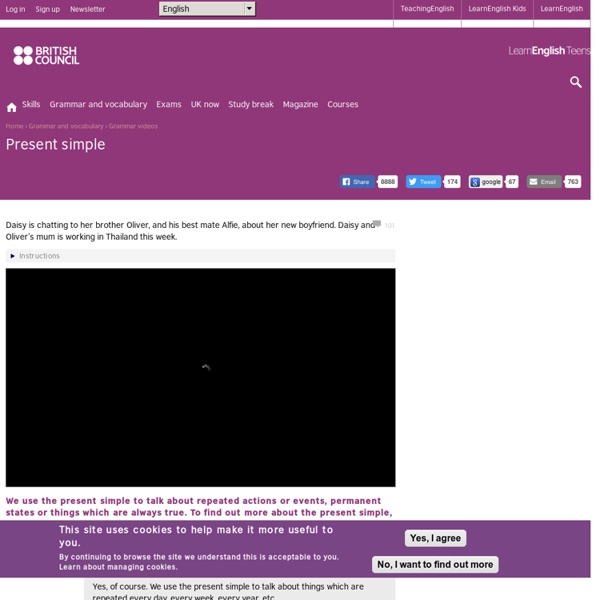The present simple

enseignants_5e_mission2
Je révise mon anglais www.jerevisemonanglais.fr 5ème : Mission 2 : Create a game on pupils in your class Se présenter Une animation sur les questions pour se présenter Un jeu de Morpion ("Tic Tac Toe") sous forme de pps téléchargeable sur les questions pour se présenter La description physique La description physique (expressions avec "to be") La description physique (expressions avec "to have got") La localisation Une animation avec des images sur les prépositions de lieu Un jeu de Morpion (Tic Tac Toe) sous forme de pps sur les prépositions de lieu (avec images) Un jeu de Morpion (Tic Tac Toe) sous forme de pps sur les prépositions de lieu (avec traduction français-anglais) Un jeu de Memory sur les prépositions de lieu sous forme de diaporama (Open Office) Si vous souhaitez me laisser un commentaire, me suggérer de nouvelles animations, me signaler une erreur ou autre, vous pouvez m'envoyer un mail à l'adresse suivante : jerevisemonanglais.fr[at]gmail.com.
The present continuous
We use the present continuous (am/is/are + -ing) to talk about temporary things which have begun but haven't finished. They are often happening now, at this moment. Here are some examples of things happening now. I'm just uploading some photos to Facebook and I'm sending a message to Billie. I'm not sure what 'temporary' means. Yes, absolutely! OK, I see what you mean. Yes, I’m glad you asked me that. At eight I’m meeting Lucas, just for a quick coffee. What about questions and negatives? For questions you just change round the subject and the verb to be. Are you working hard for the exam? For negatives you add not after the verb to be. You're not really studying at all, are you? That's fine, but I suppose there are some spelling rules for –ing forms? Yes, you're right. have - having ride - riding If a verb ends in a vowel + a consonant, the consonant is usually doubled before you add –ing. swim - swimming run - running visit - visiting open - opening begin - beginning Whoops! Why not?
ESL Resources for Teachers and Learners
Personal pronouns and possessives | LearnEnglish Teens | British Council
Oliver: Hey, Alfie. How's things? Alfie: Cool, great. You? What are you up to? Oliver: Will do.
The Christmas gift experiment
Woman: Yes, yes, yes … I’m here to make your day! 5 minutes earlier ...Woman: Hello?Woman: Hello? Woman: Hi, I’d like to give you a present for Christmas.Woman: This is for you.
British Life and Culture in the UK - Woodlands Junior School
Learning outcomes
BBC Learning English - Course: lower intermediate / Unit 2 / Session 5 / Activity 2
Grammar,Vocabulary ESL Worksheets,Handouts,Tests,Puzzles
Related:
Related:



